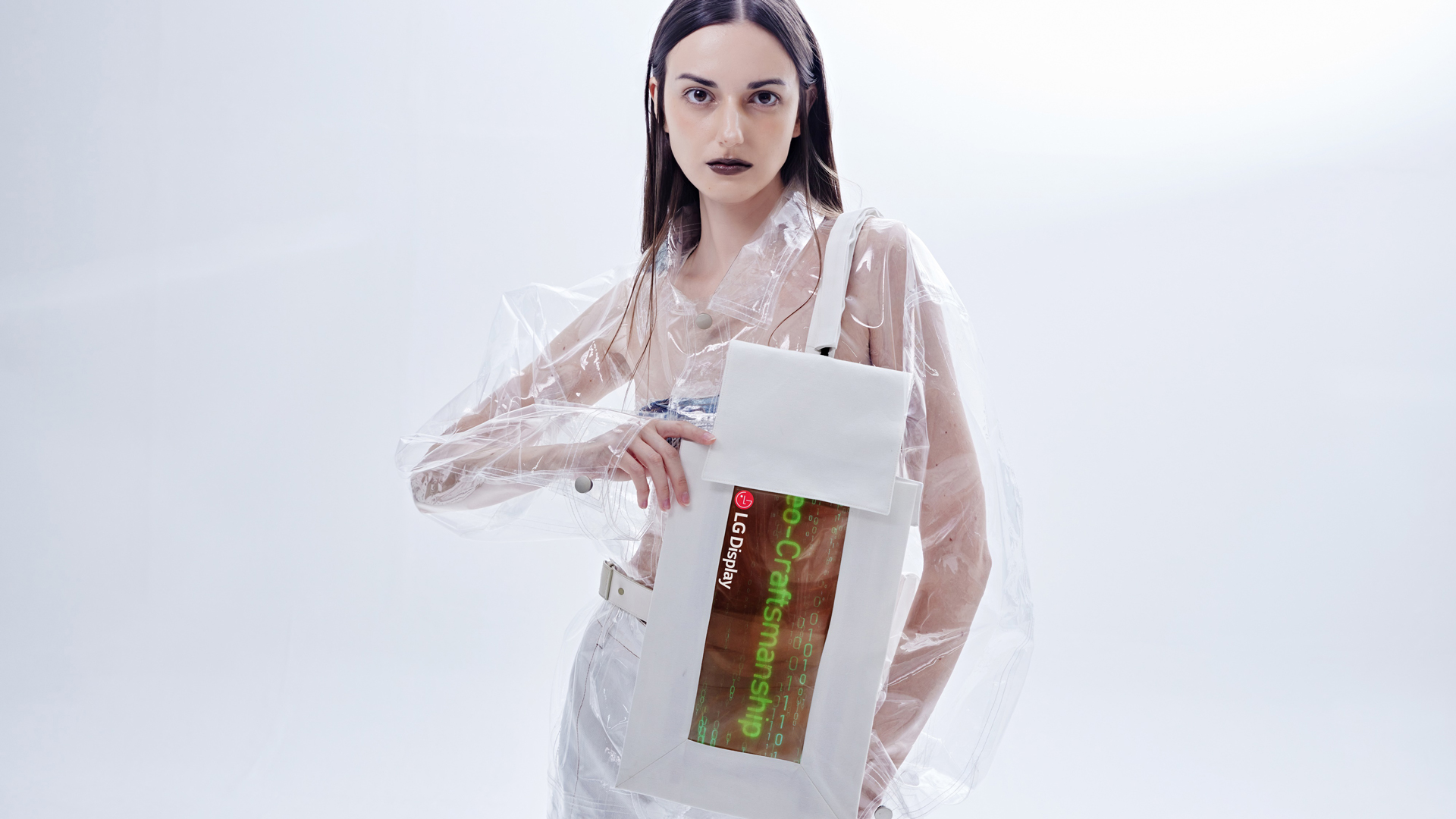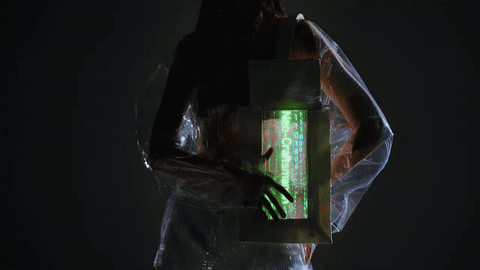Incredible stretchable displays might redefine the meaning of a screen and fashion
Pull LG Display's screen to make it bigger

Long a pioneer in flexible and transparent displays, LG Display is staking out new territory with what it's calling a groundbreaking development: stretchable displays.
Yes, you heard that right. According to LG Display, "Stretchable displays...can be freely stretched, folded, and twisted."
The folding and even twisting part is not that remarkable. I've been to many LG Display private meeting rooms at CES and other events where they've demonstrated all kinds of screen rolls, curves, twists, and bends. Stretching, however, that's something different.
LG Display's first Stretchable Display prototype is making its debut at the 2025 S/S Seoul Fashion Week (September 5-7) where runway models will show how the display can stretch from 12 to 14 inches. That's something I've never seen before.
As for what you might do with stretchy screens, well, that's why LG is showing it off at a fashion show. Imagine it on a dress that has to adjust for your curves or a bag that can handle being stuffed until it bulges. LG provided some photos and a very brief video of the LG Stretchable Display in use in a pair of fashion scenarios, but I look forward to seeing, touching, and stretching these screens myself.
“Stretchable displays will have a great impact on the fashion industry by enabling the implementation of designs that previously could only be imagined," said Korean fashion designer Chung-Chung Lee in LG's release.
But how?

LG Display explained to me that these stretchy displays are high-resolution active matrix micro-LED screens. The maximum stretch is about 20%, and the secret to that stretchability is LG Display's use of silicon material, most commonly used in contact lenses. It gives them, they claim, an almost rubberband-like stretchability. These stretchable screens could also last a while, with promised support for more than 10,000 form changes. So push, pull, and scrunch your display dress until you're worn out; the stretchable screen can apparently take it.
Sign up for breaking news, reviews, opinion, top tech deals, and more.
LG Display told me the Micro-LED screen is durable and "has a resolution that competes with standard monitors." That may be so, but the full-RGB displays only support 100 ppi. That's less than a quarter of the resolution you might get on your standard best iPhone. We still don't know anything about display size limitations or where the power source for these screens might live. Will you be wearing a battery-powered dress?
While LG Display is currently positioning Stretchable Displays for commercial use, the technology allows screens to stick not only to fabric but also to human skin. If LG Display can work out the power source situation, we could be slapping these thin, lightweight, and fungible screens on our arms and then stretching them a bit to create illustrative and ever-changing tattoo sleeves.
As LG notes in its release, "...they could revolutionize everyday life by enabling an era of IT devices that can be comfortably worn like clothes or attached to the body."
LG, by the way, is not alone in the stretchable display quest. Earlier this year, we stumbled upon an Apple patent that outlined stretchy displays for things like an Apple Watch and MacBooks. Of course, that's just a patent that may never see the light of day. LG Display's stretchable displays are already adorning shirts and bags.
You might also like

A 38-year industry veteran and award-winning journalist, Lance has covered technology since PCs were the size of suitcases and “on line” meant “waiting.” He’s a former Lifewire Editor-in-Chief, Mashable Editor-in-Chief, and, before that, Editor in Chief of PCMag.com and Senior Vice President of Content for Ziff Davis, Inc. He also wrote a popular, weekly tech column for Medium called The Upgrade.
Lance Ulanoff makes frequent appearances on national, international, and local news programs including Live with Kelly and Mark, the Today Show, Good Morning America, CNBC, CNN, and the BBC.